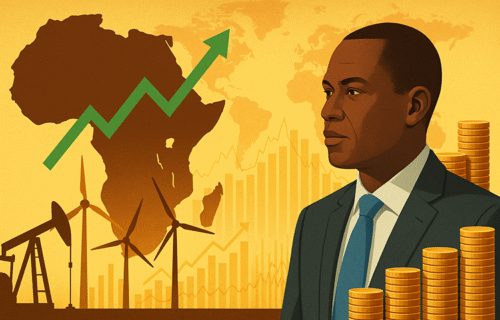Private equity in Africa is undergoing a deep recalibration. While the continent remains a small player in global private markets, the role of private capital here is outsized — it drives growth, job creation, and infrastructure in economies where public funding and traditional lending fall short. As investors navigate a volatile landscape shaped by global conflicts, currency instability, and tighter monetary conditions, Africa’s private equity sector is rebalancing: on valuations, exits, and the smarter use of capital.
In early 2025, disclosed private-capital activity in Africa totalled about $1.6 billion across 105 deals. By the second quarter, that figure nearly doubled to $3 billion over 147 transactions, according to Stears’ Private Capital in Africa report. While these totals appear small against a global private-markets pool estimated above $13 trillion, they represent essential lifelines for African economies — financing factories, power plants, digital networks, and fintech ecosystems.
However, Africa’s private markets are uneven and cyclical. In the first quarter, southern Africa dominated with roughly three-quarters of deal volume, led by South Africa. By mid-year, momentum had shifted to West Africa, where investment activity reached nearly half of all deals on the continent.
Yet this cycle feels distinctly different. Valuations have compressed, returns are harder to generate, and traditional valuation models no longer apply. With capital costs rising, investors can no longer rely on multiple expansion — profits must come from operational improvements and sustainable growth.
The new calculus in African private equity prioritises real earnings, sound unit economics, and strong leadership. Investors are less focused on top-line expansion and more on fundamentals: procurement, working-capital management, and cash conversion. This shift reflects both necessity and maturity. “When market conditions are volatile, the businesses that survive are the ones that know how to run efficiently,” a Johannesburg-based fund manager told CIJ EUROPE.
Deal structures are evolving accordingly. The second quarter of 2025 saw larger, more complex transactions underpinned by private credit and blended equity — a pragmatic response to higher borrowing costs and cautious public markets. Private credit, often paired with strategic equity, has become an important stabiliser for deal flow.
Another defining feature of Africa’s investment landscape is the dominance of Development Finance Institutions (DFIs). With many global limited partners — pension funds, insurers, and endowments — reducing exposure after subdued cycles, DFIs have become the cornerstone of fundraising. Their governance standards and ESG criteria help build credibility and attract follow-on capital, particularly in renewables, social infrastructure, and inclusive finance.
However, their processes can be slow and constrained by strict mandates. To counter this, fund managers are diversifying their investor base. Regional pension funds are cautiously raising their allocations to alternatives, while family offices are emerging as agile co-investors. New capital is also flowing from the Middle East, particularly into energy and infrastructure, where long-term returns match institutional timelines. The challenge ahead is structuring funds that combine DFI stability with the flexibility private investors demand.
Fintech remains Africa’s most visible private-equity success story, responsible for nearly all of the continent’s unicorns. The sector has expanded access to digital payments, credit, and insurance, but it now faces a valuation reckoning. Many start-ups were priced for Silicon Valley growth trajectories that do not align with Africa’s regulatory complexity and slower profitability curves.
The result is an emerging disconnect between founders’ exit expectations and buyers’ focus on cash flow and durability. Investors are adapting by planning exits earlier, shaping companies for acquisition from the outset, and strengthening governance to ensure smoother transitions. Increasingly, founder-led firms are appointing independent chairs and non-executive directors to professionalise management and prepare for long-term sustainability.
Across renewables, logistics, and data infrastructure, private investors are experimenting with shared management teams to run multiple portfolio assets efficiently — an approach that blends private-equity discipline with infrastructure scale. The emphasis is shifting from chasing large ticket sizes to building operationally robust, cash-generating businesses capable of surviving external shocks.
Ultimately, Africa’s private-equity reset is not a retreat but a maturation. The continent’s investors are learning to balance discipline with dynamism, blending global capital standards with local insight. As interest rates begin to stabilise, a clearer pricing environment could revive confidence and liquidity.
What emerges from this cycle will not be defined by megadeals but by resilient mid-sized enterprises — firms that compound value through better governance, smarter exits, and sustainable growth. In a continent where private investment remains essential to development, this shift towards quality over quantity may prove to be the most durable outcome of all.
Source: CMS
